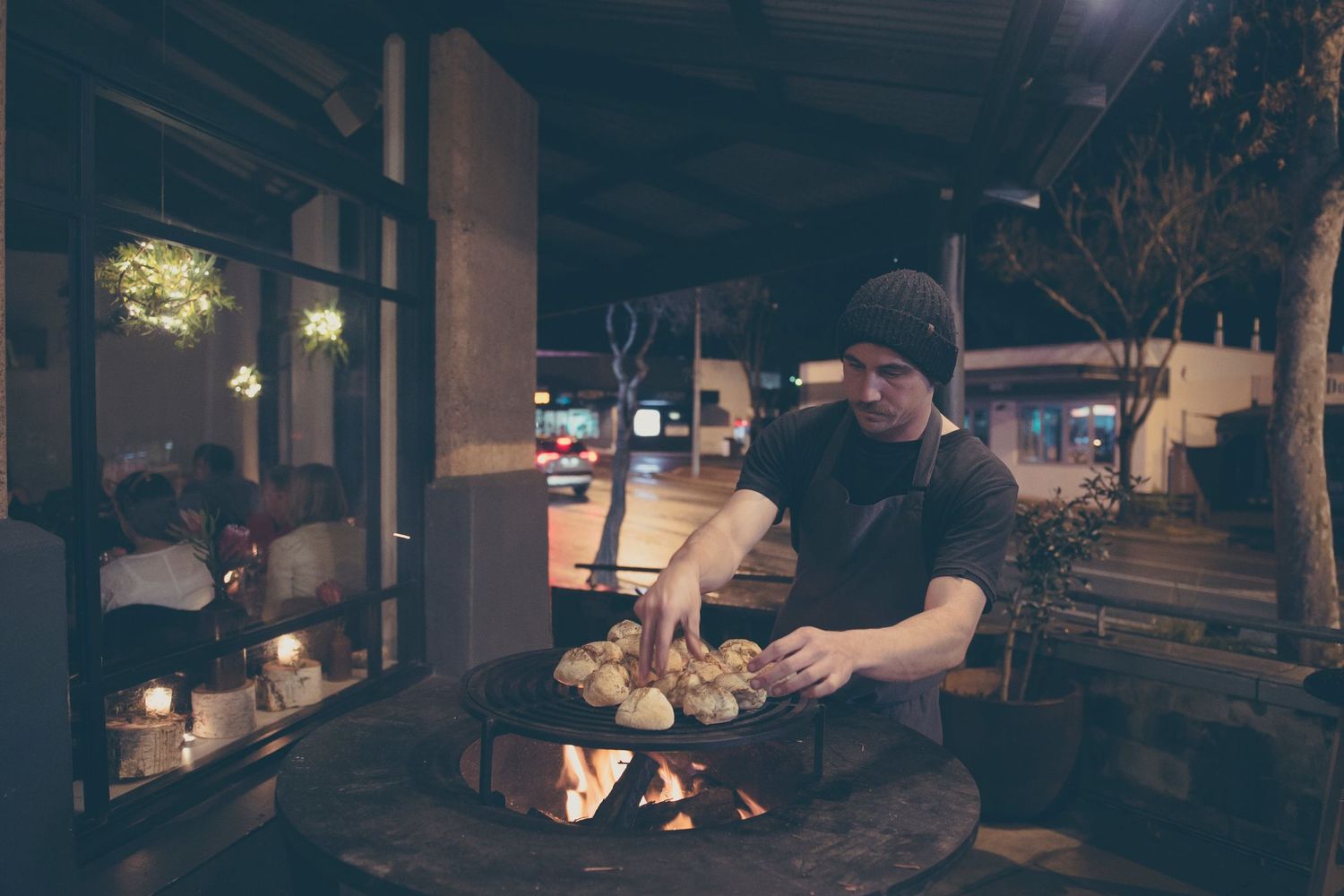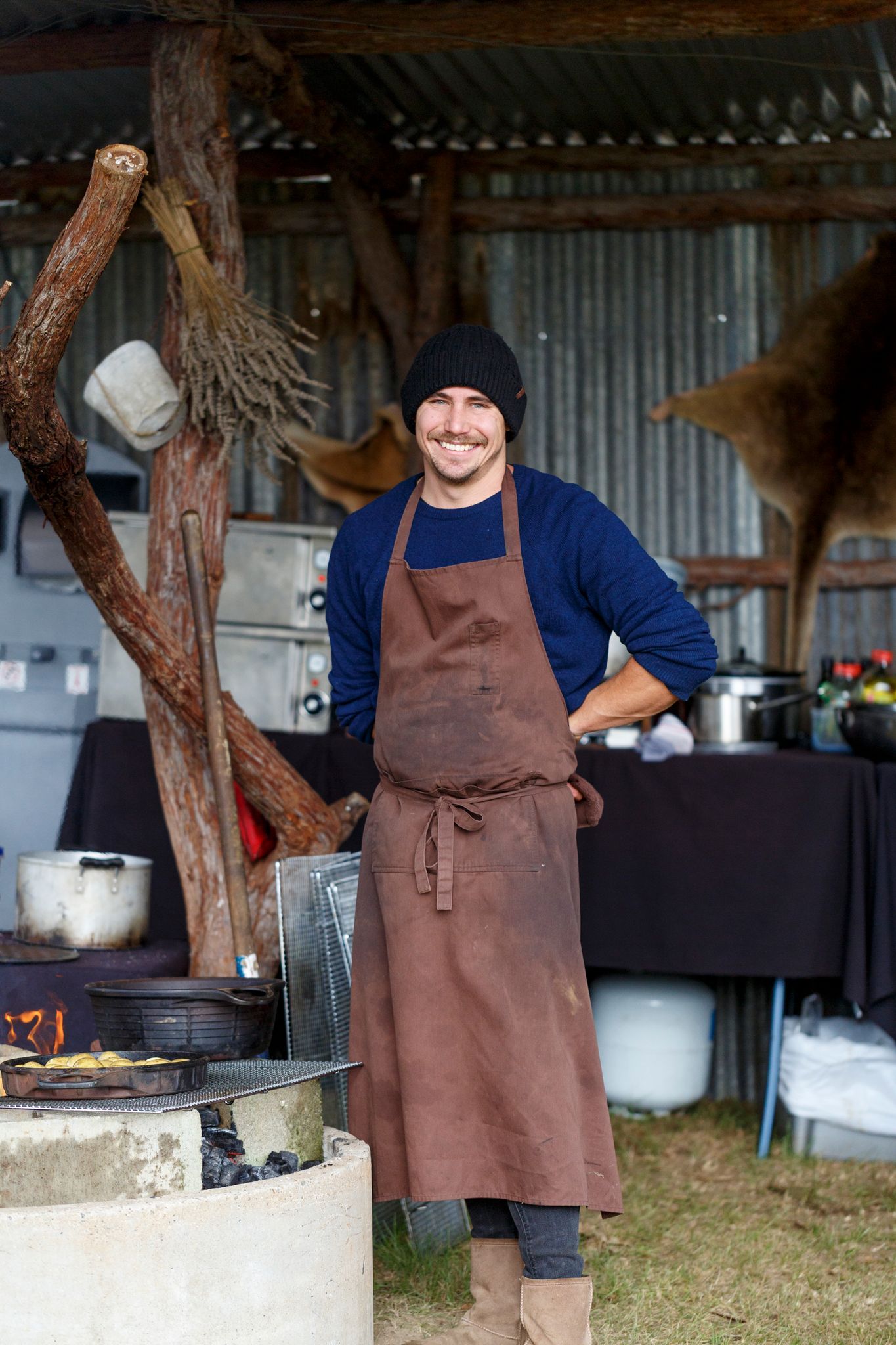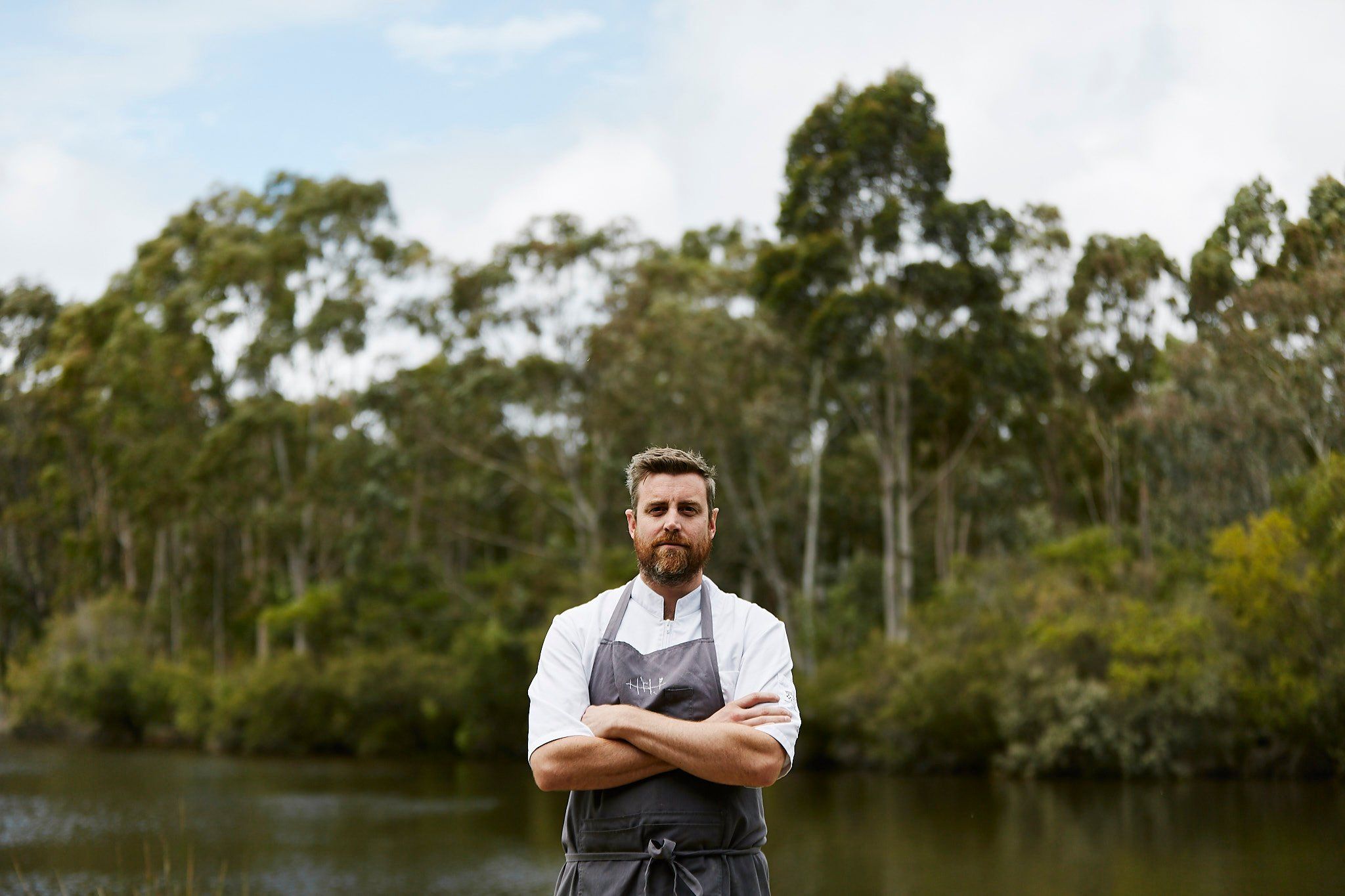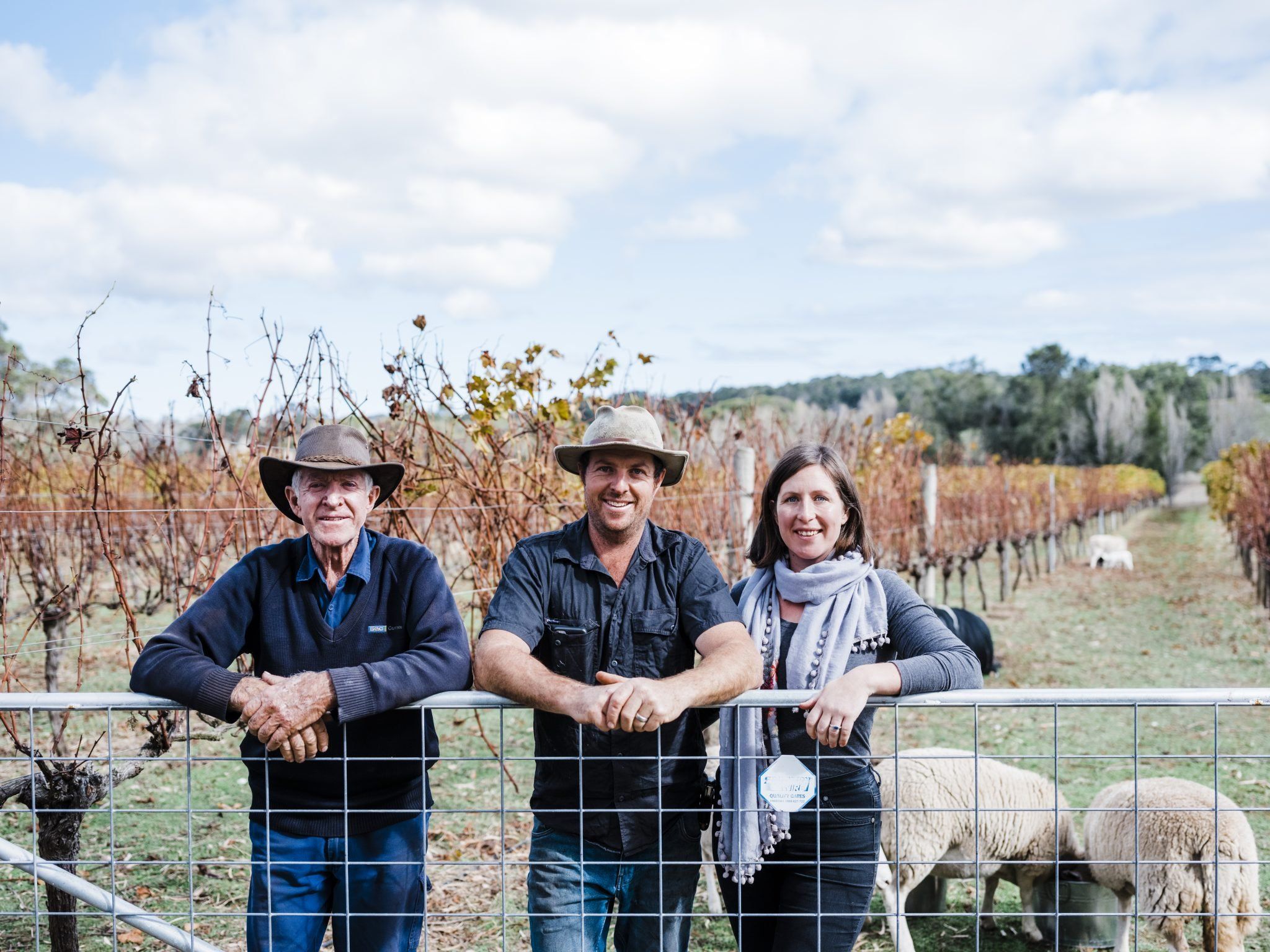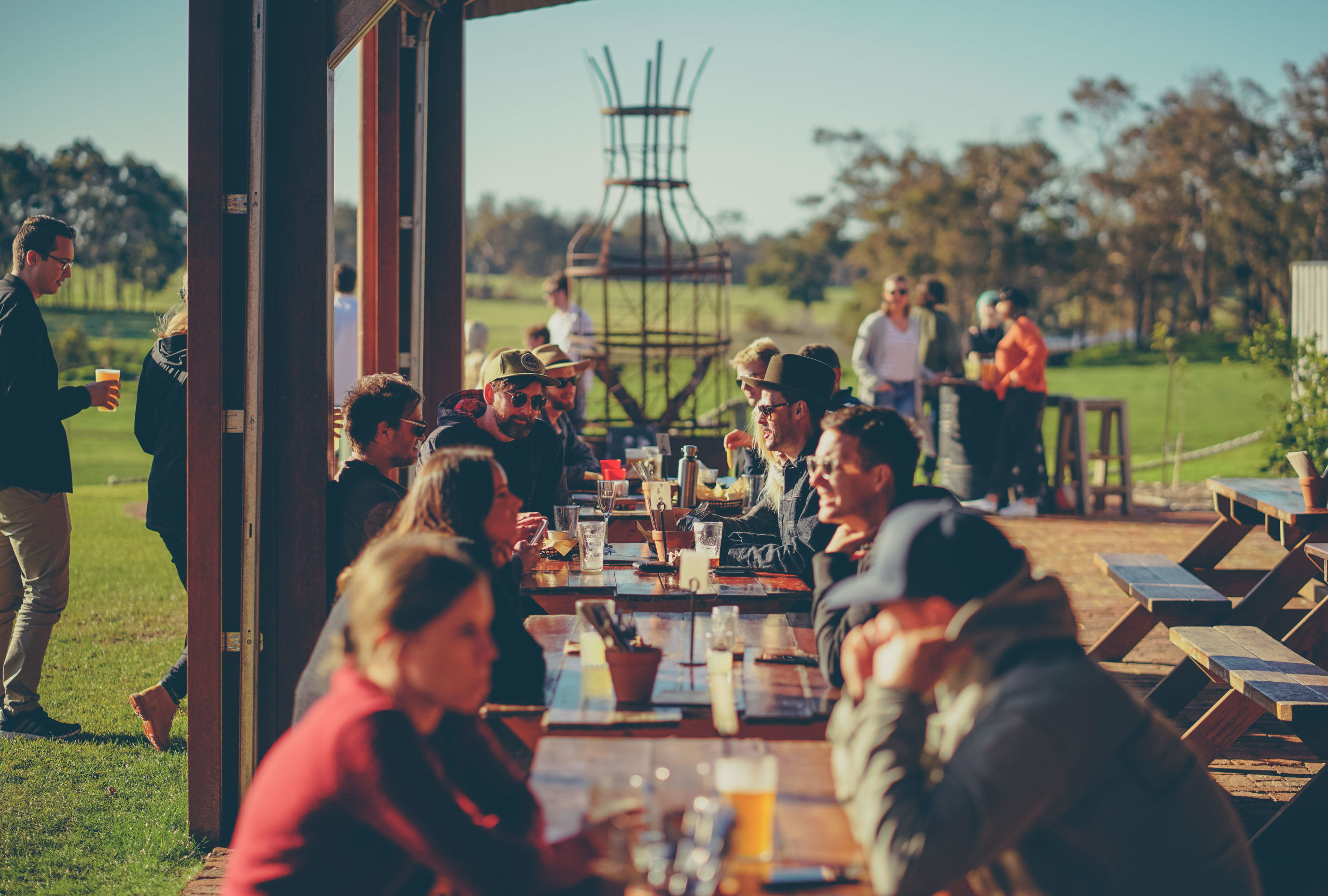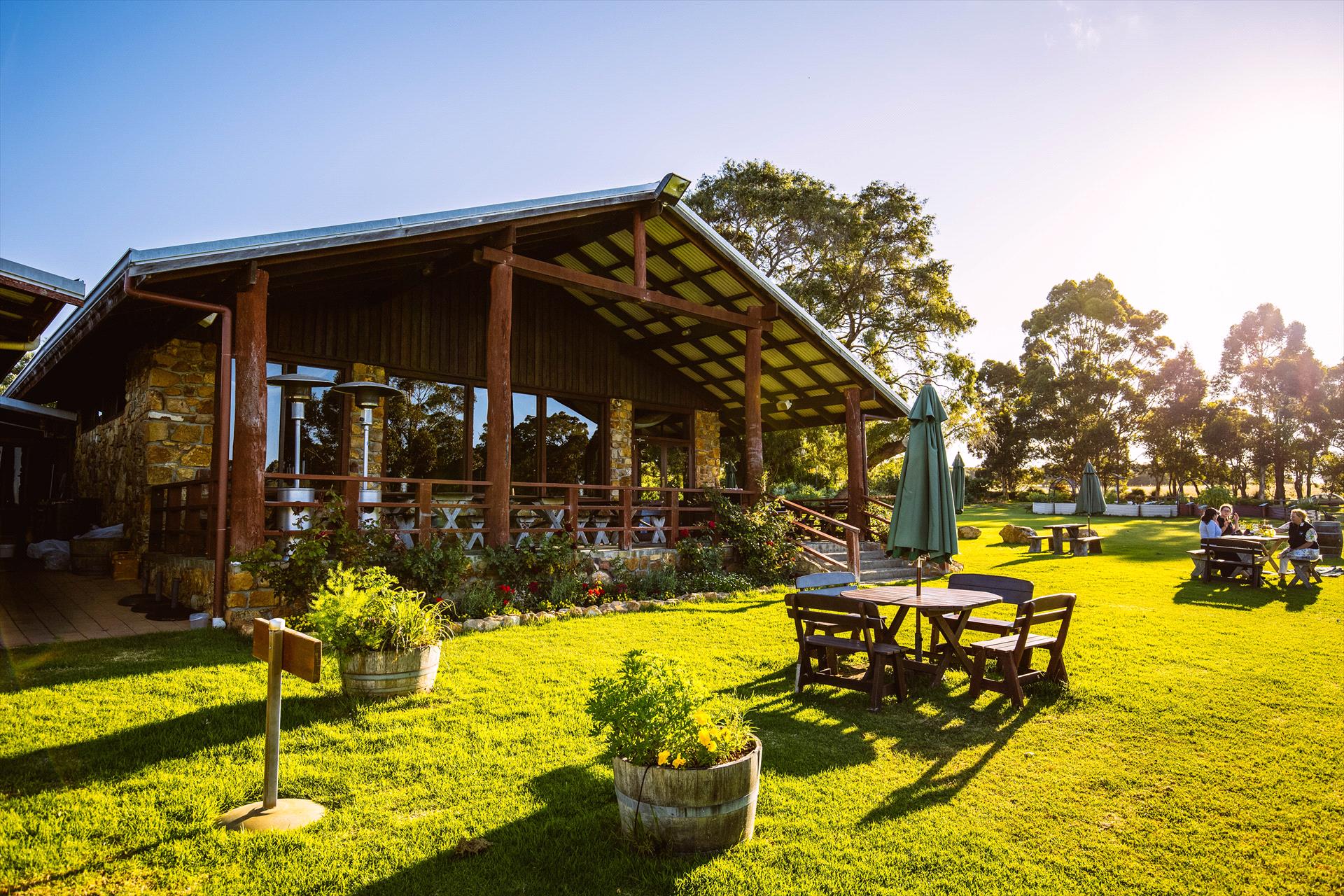Chef Evan Hayter relishes the opportunity he has to make an impact on his diners at Arimia, a boutique family-run farm, vineyard and restaurant that sits at the end of a long dirt track in Wilyabrup.
“It’s about raising people’s awareness of what they are eating, where it comes from and what it actually takes to gain that quality of produce,” Evan says, the emphasis an expression of his passion for serving what’s grown.
As head chef reliant on produce from a small-scale farm, this takes considered planning: Margaret River’s cooler climate means winter harvests can be small. Arimia’s solution is to plant well during the warmer months, preserve produce, and rely on other “truly local” certified organic farmers to fill the gaps. The farm’s harvest is diverse: trout from the dam, pork from farm pigs, olive oil, wine (of course), and all manner of fruit and veg cooked up in the off-grid commercial kitchen.
Up to 50 per cent of the restaurant’s five-course menu is farm to table at any time of year, and it’s clear Evan relishes the thought and effort involved in a truly seasonal and farm-led approach to restaurant service. “Having a clear understanding of seasonality should be what all chefs strive for,” he says. “Things just taste better when they are produced with consideration of where they have come from and how they are farmed.”
